Have India’s unicorns been ‘naughty’ or ‘nice’ in 2016?
By the time the sun rises on December 25th, Santa Claus and his fleet of 12 reindeer would have circumnavigated the globe and delivered gifts to the homes of well-behaved ("nice") children all around the world. The misbehaved ("naughty") children, on the other hand, would find coal in their Christmas stockings.
According to YourStory sources in the North Pole, this incredible feat is made possible through a combination of the latest advancements in drone technology, facial recognition, big data analytics, efficient sourcing, and robust inventory management.
Over the course of every year, Santa, along with his able team of elves, keeps a close watch on children around the world, leveraging solar-powered drones enabled with advanced facial recognition software and big data analytics to pick out the right gifts for the “nice” children. These gifts are then either manufactured from scratch in the North Pole or sourced through suppliers in China, before they make their way to Santa’s warehouse. After going through quality control assessments, they are packed, and the last-mile delivery occurs through Santa’s reindeer and sleigh.

Image credit- Shutterstock
Similar to Santa, media houses, too, keep a close watch on different companies throughout the year. Through constant reporting and well placed sources, media houses are generally aware of whether ventures have been “naughty” or “nice”.
There are currently 10 unicorn startups that are based in India, and we decided to play ‘Santa’s advocate’ to try and assess how “nice” or “naughty” they have been in 2016.
1. Flipkart
India’s most noted startup, this online marketplace is almost 10 years old now. The brainchild of Sachin Bansal and Binny Bansal, Flipkart has received funding of more than $3 billion from titans like Tiger Global Management and T.Rowe Price. The battle with Amazon India has taken a toll on them. Yet, with Jabong’s acquisition and the launch of private label ‘Flipkart Smartbuy’, they are looking forward to a better year ahead.

Nice:
- Six-step quality check for products under Flipkart Assured initiative.
- Moved goods worth Rs 1,400 crore GMV in a day during the Big Billion Days sale.
- Acquisition of PhonePe turned out to be a boon post demonetisation.
Naughty:
- Got poor grades (valuations) from investors: five markdowns in a year!
- Had a fallout with friends: 10 top names left, and campus placements for freshers were deferred.
- Upset Gorkha community with their ‘kids are back’ ad, for which they apologised.
- Apparently sold the One Plus 3 during their Big Shopping Days sale, despite One Plus’ exclusive tie-up with Amazon India.
- Shut down image search feature and ‘Ping’ for p2p chat.
2. Paytm
Fintech was the most prominent sector for startups this year, and Paytm – backed by Alibaba, SAIF Partners, and Ratan Tata, among others – has emerged as the market leader, especially in the post-demonetisation era. While it was riding high on the demonetisation wave, Airtel beat it to pilot launch the first payments bank. Paytm will soon transfer its wallet business to its Payments Bank arm.

Nice:
- ‘Topped the class’ with a 435 percent rise in traffic overnight and 250 percent surge in transactions (after currency ban was announced).
- Raised Rs 400 crore from a MediaTek investment fund, achieving $5 billion valuation.
- Processed sales worth Rs 220 crore in four days; valuation rose again by 4.7 percent.
Naughty:
- Due to rising traffic, technical issues hampered transactions.
- Paytm’s app disappeared from Apple’s App Store temporarily, and Android users were asked to delete and install their new unified app.
- Point of sale (PoS) feature pulled immediately after launch due to security concerns that surfaced on social media, only to be launched later.
3. Snapdeal
For most of 2016, this online marketplace, co-founded by Rohit Bansal and Kunal Bahl, has been rumoured to be on the verge of acquisition by its top investor Alibaba. The exit of SoftBank COO Nikesh Arora, who was instrumental in the Japanese VC firm’s investment in Snapdeal, was expected to hamper Snapdeal’s chances of raising funding. There have also been reports of Sequoia and Kalaari Capital trying to sell off part of their stakes in the company.

Nice:
- Raised $200 million in a funding round led by Canada-based pension fund Ontario Teachers’ Pension Plan.
- Rebranded with a new logo, invested Rs 200 crore in marketing.
- ‘Snapdeal Gold’ launched, giving free upgrade to next day delivery for prepaid orders.
- Wallet on Delivery and FreeCharge on Delivery launched 48 hours after demonetisation was announced.
Naughty:
- Lost Jabong to Flipkart, thereby losing out on online fashion segment.
- Shut down Exclusively.in 18 months after their acquisition of it.
- Omni-channel strategy launched in December 2015 failed to make waves.
4. ShopClues
The Gurgaon-based online marketplace attained a $1.1 billion valuation when it raised over $100 million in a Series E round led by a Singapore-based fund. Co-founded by Sandeep and Radhika Aggarwal, along with Sanjay Sethi, ShopClues is backed by Tiger Global and Helion Ventures, among others. There have been rumours of acquisition by Alibaba as well as a merger with Flipkart – both of which have been denied by the team.

Nice:
- Acquired mobile payments startup Momoe in July to build its own payment arm.
- ‘Reach’ service launched to enable cashless transactions by SMS, without app and e-wallet, for offline merchants.
- Wasn’t involved in any layoffs and devaluations this year, unlike other e-commerce unicorns.
Naughty:
- (No mischief detected for 2016)
5. Ola
Ola spent 2016 launching new services, expanding to more cities and battling Uber. Some of the most significant updates include offline booking, which lets users book a cab without an active internet connection, and the launch of OlaPlay, an in-cab entertainment system, in collaboration with ‘experience partners’ like Apple music and Sony. According to reports, Ola is close to raising $600 million in funding in a down round.
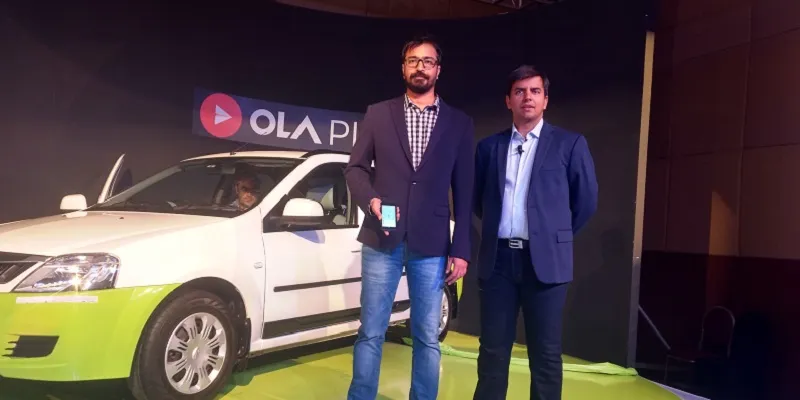
Nice:
- Launched multiple features and services to improve end-user experience, including offline booking, Ola Select and OlaPlay.
- Ola has promised to invest Rs 100 crore for skill development of drivers in India.
- Onboarded Mumbai’s Kaali Peeli taxis onto its platform.
Naughty:
- Uber has accused Ola of booking 400,000 fake rides on its platform. Jugnoo too made similar accusations.
- Ola was forced to take down an ad comparing a woman’s spending habits with Ola Micro fares.
- Ola shut down TaxiForSure and laid off 90 percent of its workforce.
6. Zomato
About two months ago, restaurant search and discovery service platform Zomato announced the acquisition of logistics-tech startup Sparse Labs to further optimise delivery routes. In a detailed post, the company also shared what its unit economics for food delivery looked like while they delivered about 750,000 orders in May 2016.
In May, HSBC slashed the paper valuation of Zomato to half its value ($500 million). Zomato, though, disagreed with HSBC’s markdown and noted that all their existing investors were bullish about them, categorically stating that their valuation was justified. A recent report noted that Zomato had roped in Morgan Stanley for its latest funding round, the proceeds of which it aims to invest in food delivery and cloud kitchens.

Nice:
- In November, Zomato claimed to be the #1 player in the foodtech space in 18 of the 23 countries it operates in, in terms of monthly unique users.
- Partnered with Apple’s Maps platform to make table bookings more seamless.
Naughty:
- Ran ads on Pornhub and other porn websites between 11 pm and 4 am.
- Had to shut down operations in four cities - Lucknow, Kochi, Indore, and Coimbatore - in January 2016.
7. InMobi
Mobile advertising and discovery platform InMobi was founded by Naveen Tewari, Mohit Saxena, and Amit Gupta in 2007. The company claims to reach over 1.5 billion unique mobile devices worldwide every month. InMobi recently integrated Nielsen Digital Ad Ratings to provide advertisers with more rigorous ‘audience verification solutions’. Earlier in April, InMobi saw two high-profile exits, with CFO Manish Duga. InMobi also laid off close to 100 employees at the same time.
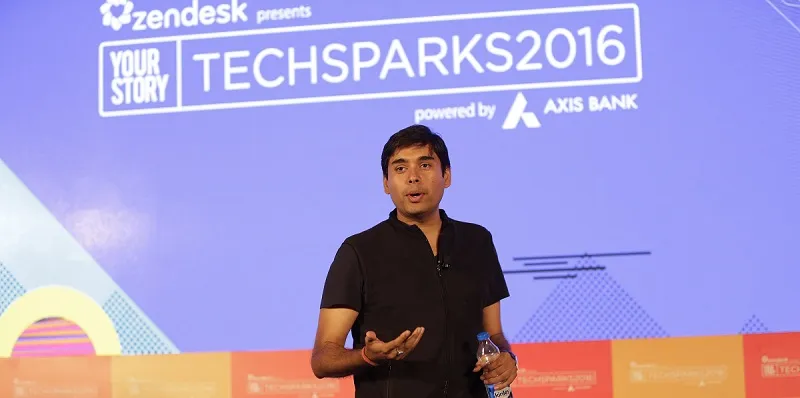
Nice:
-Was recently recognised by Fast Company as one among the most Innovative Companies in the world in 2016.
- Recently launched a remarketing platform that is designed and optimised for mobile.
Naughty:
- The Federal Trade Commission (FTC) in the US asked InMobi to pay a $950,000 fine for allegedly tracking consumers’ locations without permission. InMobi clarified that it was a technical error, which was fixed in Q4 2015.
8. Mu Sigma
2016 was not the best year for Mu Sigma. Headquartered in the US, this 12-year-old big data analytics company - last valued at $1.5 billion - was in the news in May when Founder-Chairman Dhiraj Rajaram and his wife (then-CEO) Ambiga Subramanian separated. A few months later, Dhiraj bought out her stake in the firm and replaced Ambiga as CEO, becoming the single largest stakeholder.
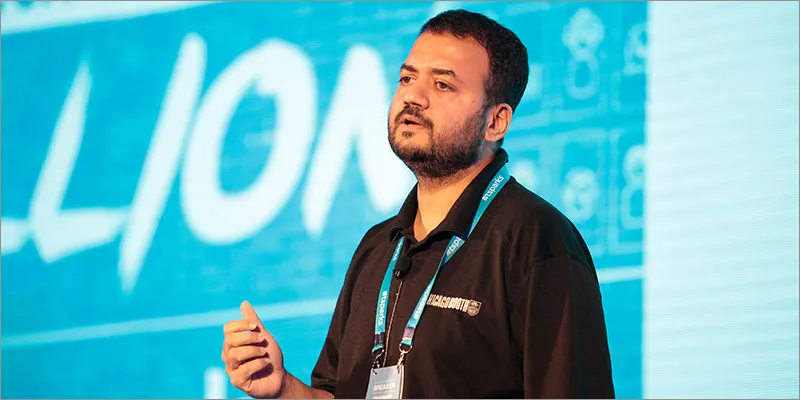
Nice:
- Canadian investors like Ontario Teachers’ Pension Plan and Canada Pension Plan Investment Board are reportedly keen to buy a stake in Mu Sigma.
Naughty:
- Founder Dhiraj Rajaram was sued for “grossly misleading” investors to buy back their shares at a lower price.
9. Quikr
Founded in 2008 by CEO Pranay Chulet, Quikr is the only unicorn that saw a hike in its valuation in 2016. The company’s estimated valuation rose from $1 billion to $1.47 billion when Kinnevik AB, the Swedish investment firm, valued its 18 percent stake in Quikr at $265 million. After acquiring CommonFloor for $200 million at the end of 2015, the company went on to acquire Salusa and Zapluk through its Quikr services arm in mid-2016.
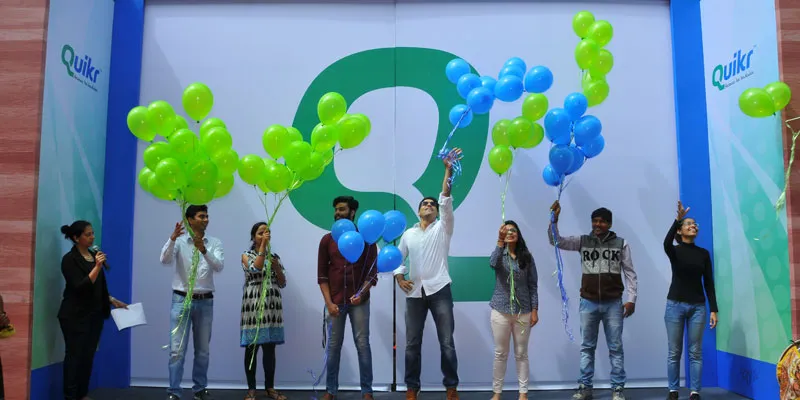
Nice:
-Multiple acquisitions.
- Launched app, CashNoCash, nearest ATM finder after demonetisation.
Naughty:
- Fired about 150 CommonFloor employees and shut down Flatchat app a few months after the acquisition.
10. Hike
The most recent entrant into the unicorn club, Hike was founded by Kavin Bharti Mittal in 2012. A communication app in essence, Hike lets users converse over text, voice, and video calls. In the latter half of 2015, Hike entered the short form news space, and then went on to launch in eight Indian languages.
In August 2016, Hike announced raising $175 million in a Series D round led by Tencent and Foxconn, entering the unicorn club with a $1.4 billion valuation. Hike is also known for its stickers and in-app games. The venture launched ‘Teen Patti nights’ during Diwali to add to their existing collection of 10 games. Their other two significant moves for 2016 were launching video calls and ‘Hike Stories’, with the latter being a leaf out of Snap’s playbook with Snapchat stories.
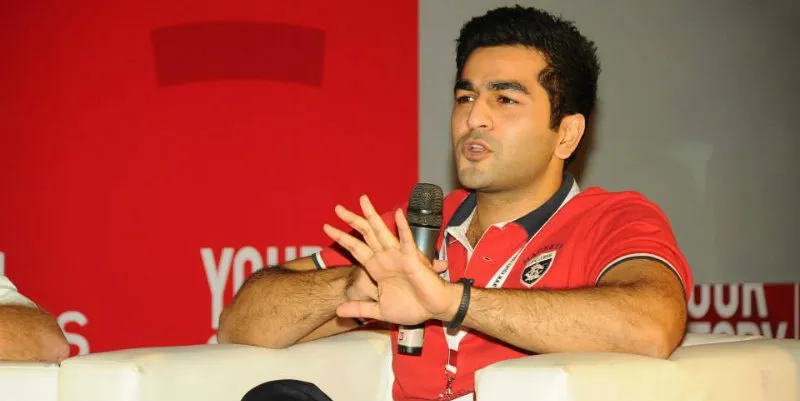
Nice:
- A ‘Made in India’ app for Indians, with over 100 million installs across all platforms. Includes ‘Indianised stickers’.
- Hike Stories include quirky filters like Narendra Modi, Charlie Chaplin, The Joker and even a Kathakali artist. Stories last for 48 hours.
- Steady month-on-month growth. Had over 30 million monthly active users in October 2016.
Naughty:
-Took a big leaf out of Snap’s book by incorporating ‘Hike Stories’.
-No revenue model yet. Has teased at the possibility of integrating payments into Hike.







